It’s Jummah!! Did you read Surah Kahf?
Posted in Daily Islam,QuranJune 22, 2012No comments
Posted in Daily IslamJune 22, 2012No comments
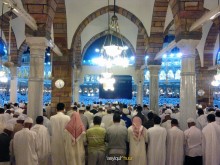
Wake up for Fajr Salah …
A man woke up early to pray the Fajr Prayer in the mosque. He got dressed, made his ablution and was on his way to the mosque. On his way to the mosque, the man fell and his clothes got dirty.
He got up, brushed himself off, and headed home. At home, he changed his clothes, made his ablution, and was again on his way to the mosque.
On his way to the mosque, He fell again and at the Same Spot!. He again got up, brushed himself off and headed home. At home, he once again changed his clothes, made his ablution and was on his way to the mosque yet another time.
This time, he met a man holding a lamp. He (first person) asked the man of his identity and the man replied ‘I saw you fall twice on your way to the mosque, so I brought a lamp so I can light your way’. The first man thanked him profusely and both start walk on their way to the mosque.
When they reached mosque, the first man asked him to come in and pray Fajr with him. The second man refused, the first man asked him a couple more times and again the answer was the same. The first man asked him, you looks like a very nice person, helped me as well, why you did not wish to come in and pray. Then second person replied.
I am Shaytaan(devil/ evil)
The man shocked at his reply. Shaytaan went on to explain, “I saw you on your way to the mosque and it was I who made you fall. When you went home, cleaned yourself and went back on your way, Allah forgave all of your sins. I made you fall second time and even that did not urge you to stay home but rather you went back on your way to the mosque and because of that, Allah forgave all the sins of the people of your household.
I was AFRAID, if I made you fall one more time, then Allah will forgive the sins of the people of your village, so I made sure that you reached here safely.”
(Do not put off a good that you intended to do as you never know how much reward your might receive from the hardships you encounter while trying to achieve that good).
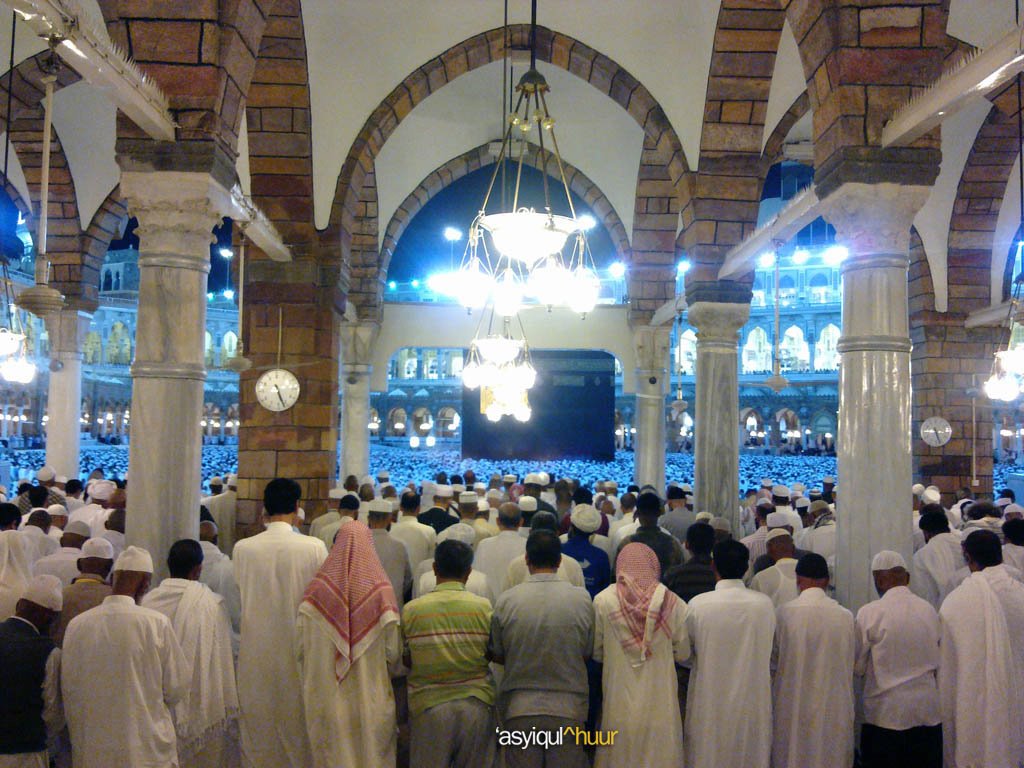
Posted in Daily IslamJune 21, 2012No comments

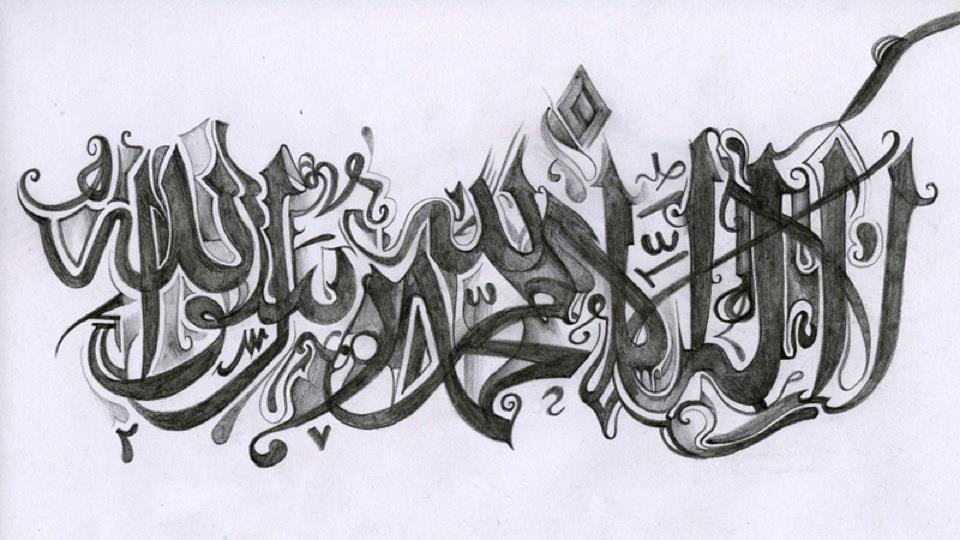
there is no god but Allah and Muhammed peace be upon him is his last and final messenger..
Art credit: Andrei Georgescu
Posted in Daily Islam,HadithJune 21, 2012No comments
Messenger of Allah (Sallallähu alaihi wa sallam) said, “On the Day of Rising no one will bring anything better than someone who says in the morning and evening, “Subhanallahi wa bihamdhihi” (Glory be to Allah and by His praise’ a hundred times except someone who says the same as he says or more.” [Muslim]
Posted in Daily Islam,Hadith,QuranJune 21, 2012No comments

Allah said:
قُلْ يَا عِبَادِيَ الَّذِينَ أَسْرَفُوا عَلَىأَنفُسِهِمْ لَا تَقْنَطُوا مِن رَّحْمَةِ اللَّهِ إِنَّ اللَّهَ يَغْفِرُالذُّنُوبَ جَمِيعًا إِنَّهُ هُوَ الْغَفُورُ الرَّحِيمُ
Say: “O my Servants who have transgressed against their souls! Despair not of the Mercy of Allah: for Allah forgives all sins: for He is Oft-Forgiving, Most Merciful. [az-Zumar : 53]
Indeed, Allah has opened the door of repentance to every sinner. The Prophet SAW said,
“Oh people, repent to Allah, for indeed, I repent to Allah 100 times every day” [Muslim : 2702]
It is truly encouraging to know that the door to repentance is always open, but what is more, Allah is actually happy when one of His slaves repents. It is important to note here that the keys to repentance are that a sinner must desert from his sin, feel regret for having perpetrated it, and then make a firm resolve not to return to it.
Who among us does not sin? And who among us does all that is required of him in the religion? It is an undeniable fact that we all have shortcomings; what distinguishes some of us from the others, what raises some of us above the others, is that the successful ones among us are those who repent their sins and ask Allah to forgive them. Sadly, some people are guilty of thinking in this manner: “Those I see around me perpetrate minor sins, while I am guilty of perpetrating major sins, so what is the use of repenting?!” True, such a person does well by finding fault with his own self, yet he makes a grave, ruinous error when he loses hope, when he underestimates Allah’s Forgiveness and Mercy. To be sure, the door of repentance is open both to the perpetrator of minor sins and to the perpetrator of major sins.
In regard to repentence, the following beautiful hadith should inspire hope in us all:
Ibn Mas’ud narrated that the Prophet said:
“Indeed, Allah is more happy with the repentance of His slave than a man who stops in a barren, desolate land; with him he has his riding animal. He then goes to sleep. When he wakes up, [he realizes that] his mount is gone. He searches for it until he is on the verge of dying. He then says, ‘I will return to the place wherein I lost it, and I will die there.’ He went to that place, and he was then overcome by sleep. When he woke up, his mount was [standing] right beside his head: on it was his food, his drink, his provisions, and the things he neded. Allah is more happy with the repentance of his believing slave than the aforementioned man when he finds his mount and his provisions.” [al-Bukhaari: 6308 ; Muslim: 2744]
This hadith clearly illustrates that no one should become so hopeless that he refrains from repenting to Allah. Glad tidings, then, to every Muslim who constantly and consistently hastens to repent to Allah and to ask for his forgiveness.
And Allah knows best.
Posted in Daily Islam,QuranJune 21, 2012No comments
For the evil-doers, their refuge shall be the Fire. Every time they want to escape from it they shall be driven back and shall be told: “Taste the chastisement of the Fire which you used to reject as a lie.”
We shall certainly have them taste some chastisement in this world in addition to the greater chastisement (of the Hereafter); perhaps they will retract (from their transgression).
And who is more unjust than he who is given good counsel through the Signs of his Lord and yet he turns away from them?
Surely We will exact full retribution from such criminals. [32:20-22]
Posted in Daily IslamJune 20, 2012No comments
There was once a man who was an enemy to Islam. He had three famous questions that no person could answer. No Islamic scholar in Baghdad could answer his three questions…thus he made fun of Islam in public. He constantly ridiculed Islam and the Muslims. One day a small boy, who`s age was 10, came along and heard the man yelling and screaming at Muslims in the street. He was challenging people openly to answer the three questions.The boy stood quietly and watched. He then decided that he would challenge the man. He walked up and told the man, “I will accept your challenge”.
The man laughed at the boy and ridiculed the Muslims even more by saying, “A ten year old boy challenges me. Is this all you people have to offer!”
But the boy patiently reiterated his stance. He would challenge the man, and with Allah`s help and guidance, he would put this to an end. The man finally accepted.
The entire city gathered around a small “hill” where open addresses were usually made. The man climbed to the top, and in a loud voice asked his first question.
“What is your God doing right now?”
The small boy thought for a little while and then told the man to climb down the hill and to allow him to go up in order to address the question.
The man says “What? You want me to come down?”
The boy says, “Yes. I need to reply, right?”
The man made his way down and the small boy, age 10, with his little feet made his way up.
This small child`s reply was “Oh Allah Almighty! You be my witness in front of all these people. You have just willed that a Kafir be brought down to a low level, and that a Muslim be brought to a high level!”
The crowd cheered and screamed “Takbir”….”Allah-hu-akbar!!!”
The man was humiliated, but he boldly asked his Second question… “What existed before your God?”
The small child thought and thought.
Then he asked the man to count backwards. “Count from 10 backwards.”
The man counted…”10, 9 ,8 , 7 , 6, 5, 4, 3, 2, 1,0″
The boy asked, “What comes before 0 ?”
The man: “I don`t know…nothing.”
The boy: “Exactly. Nothing was before Allah, for He is eternal.
and absolute.”
The crowd cheered again….”Takbir!”….”Allah-hu-akbar!!!!”
The man, now completely frustrated, asked his final question. “In which direction is your Allah facing?”
The boy thought and thought.
He then asked for a candle.
. A candle was brought to him. The blessed child handed it to the man and asked him to light it.
The man did so and remarked, “What is this supposed to prove?”
The young boy asked, “In which direction is light from the candle going?”
The man responded, “It is going in all directions.”
The boy: “You have answered your own question. Allah`s light (noor) goes in all directions. He is everywhere. There is no where that He cannot be found.
“The crowd cheered again….”Takbir!”….”Allah-hu-akbar!!!”
The man was so impressed and so moved by the boy`s knowledge and spirituality
, that he embraced Islam and became a student of the young boy.
So ended the debate.
Who was the young boy?
The young boy was one of our leaders and one of the greatest scholars, Imam Abu Hanîfa (May Allah bless him).
Posted in Daily Islam,QuranJune 20, 2012No comments
(O Muhammad), when My servants ask you about Me, tell them I am quite near; I hear and answer the call of the caller whenever he calls Me. Let them listen to My call and believe in Me; perhaps they will be guided aright. Surah Al-Baqarah [2:186]
Posted in Daily Islam,EventsJune 20, 2012No comments

Posted in Daily Islam,MasjidsJune 20, 2012No comments

[This is Jannatul-Baqi.. Graveyard of Medina. Resting place of The Most Honoured Souls after the Prophets(as)… The Sahaba(ra) ♥ ]
A companion of the Prophet (saw) named Abdullah bin Hudhaifah Al-Sahmi (ra) was among the soldiers that Umar ibn Al Khattab despatched to the Romans, who were then captured. Abdullah was captured by the Romans who took him to the king and said, “He is from Muhammed’s companions.”
The tyrant king said to him; “Would you like to be a Christian and for me to make you a partner in my property and kingdom?”
Abdullah replied; “If you give me all that you posses to leave the Deen of Muhammad (sa) I would not do it.”
The tyrant said to him; “Then I will kill you,” He said, “It is up to you.”
The king commanded him to be crucified. At the same time he instructed his shooters to shoot Abdullah near his hands and near his legs while continuously offering him the same offer, but Abdullah refused. Then he commanded for Abdullah to be brought down and he called for a big pot, poured water into it until it was boiling and asked for two captured Muslims to be brought forth.
He then gave an order for one of the Muslims to be thrown into the bowling water unless Abdullah accepted his offer of becoming a Christian, but Abdullah refused. Finally, he commanded that Abdullah be thrown inside the boiling pot also. As Abdullah was being taken away he began to cry.
The king thinking that Abdullah’s resolve was broken instructed for him to be brought back and offered Christianity to him but once again he refused. Shocked at Abdullah’s answer, the tyrant king asked; “Why then did you cry?”
Abdullah replies; “I cried because I said to myself you will be thrown in this pot and pass away. It saddens me that I only have one life to give. I would like that I had as many souls as the number of hairs on my body so that they can all be sacrificed and then meet Allah Ta’ala.”
May Allah never afflict us with trials as such and grant us true strength on the long road to Jannah. Ameen
Posted in Daily Islam,QuranJune 19, 2012No comments

A Mother said once to her little child:
“Read Surah Al-Ikhlas 10 times so that Allah build for you a house in Jannah”
• The little boy started to read, and then he looked to his mother and saw her reading Surat Al-Ikhlas as well, so he told her: “no mommy! you don’t have to read it, because you are going to live with me in my house in Jannah”

Posted in Daily Islam,QuranJune 19, 2012No comments
Call upon your Lord with humility and in secret. Surely He does not love the transgressors.[7:55]
Posted in Daily Islam,EventsJune 19, 2012No comments
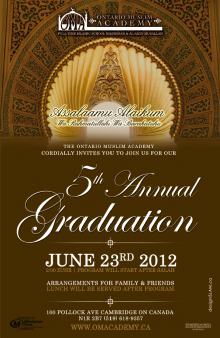
Posted in Daily Islam,QuranJune 18, 2012No comments
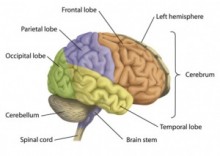
“If it wasn’t for their political problems and constant fighting between each other, the Muslims would have been on the moon by the 1400’s” was the statement made by a non-Muslim professor in a 400-level undergraduate class on the history of science. It seems that the rate of discovery and advancement in science achieved by the Muslims was quite impressive and has yet to be replicated. What was it that they were doing that allowed for their fast progress?
The teacher in me immediately thinks about their education system, and the neuroscientist in me wants to examine the factors involved in shaping the brains of such a civilization. Interestingly, many Muslim religious scholars will say something about how the Muslims were the leaders when the Quran was the center of their education, and only when they abandoned the Quran that they lost their reign. The amazing thing about this is that while Muslim religious scholars are typically talking about spiritual and moral realities, there is actually a material reality to what they’re saying, which takes place in the brain.
A quick disclaimer here: The list of all that is affected in the brain by the Quran and how that can influence other functions is quite exhaustive. But in the interest of keeping it short, I chose some major areas to present in this article.
Before getting into the brain and how the Quran changes it, one should be familiar with how traditional Muslim education took place. In case you’re wondering where I’m getting this from, it’s from reading the biographies of major figures of scholarship in the traditional Muslim world such as Ibn Rushd, Ibn Sina, and others. This is also based on my personal experience and what I have been told by some of my teachers.
The very first thing taught to an aspiring student was the Quran, which had to be memorized completely. Unlike anything else encountered in spoken Arabic, Quran recitation is a very specific science. Local dialects of Arabic or different ways of pronunciation are not permitted when reciting the Quran. In fact, part of learning the Quran is learning what is called in Arabic taj’weed, which means elocution. The very first thing the student must do is replicate exactly how the teacher is reciting the verse. This refers to where individual letter sounds are being generated in the mouth and throat and where the tongue is to be placed exactly. Once this is done, the student writes the verse on a wooden board in the Othamni script, which follows different spelling rules than regular Arabic writing. The student then takes his board and goes away to memorize the verse. A typical memorization session for a beginner starts with repeating one verse multiple times as it is read on the board to also memorize how it is spelled using the Othmani script. The next day the student reviews the verse several times before returning to the teacher to receive the following verse. After repeating it with the teacher to ensure exact replication of sound and pronunciation, the student writes the new verse and goes away to begin a new memorization session. The third day begins with reviewing the first verse one final time, followed by the second verse several times before going to receive the third verse. On the fourth day the first verse is not reviewed anymore as it would have taken hold in memory, and the second verse takes its place for being reviewed while the third verse is repeated several times before going to receive the fourth verse. At the end of the week is a complete review session for everything that was memorized in the previous days.
As the days pass the capacity for memorization increases and the student is able to take on several verses or even pages at a time instead of only one or two verses. The writing using Othmani spelling continues, as well as the review sessions. Eventually, the whole Quran having more than 6,200 verses is memorized word for word with their specific pronunciation and Othmani spelling. Now the hard task begins as the student works to review all the verses on a monthly basis so as to not forget them. This usually means taking the 30 parts of the Quran as it has been divided to facilitate memorization, and reviewing one part everyday until all 30 have been recited by the end of the month.
It should be mentioned here that the Quran has 10 different modes of recitation. This refers to the placement of diacritical marks on the words and how certain words are pronounced. Some students take this task on and memorize the Quran in all the different modes of recitation, which requires a very careful attention to where the pronunciations are different so they’re not confused with each other given how subtle they sometimes can be.
There are a couple of important qualities about the Quran that relates to how it sounds. Verses in the Quran rhyme and change rhythm often, which gives a pleasurable effect to the listener. Furthermore, as one recites, they’re supposed to sing it rather than simply read it. In fact, the very practice of Taj’weed (elocution) forces the reciter into a singing tone as they enunciate the words of each verse.
A final note to bring up is in regards to the Arabic language and writing in Othmani script. Part of studying the different modes of recitation requires the student to write not only in an unusual spelling, but also to exclude the diacritical marks from the words. This would allow the student to learn the variations of recitation without having the diacritical marks visually interfere with their memorization of different modes of recitation. Moreover, the grammar of the Arabic requires the proper use of diacritical marks in pronunciation so as to not confuse things such as the subject and predicate. This means that the one learning the Quran must always keep track of how the words are enunciated so as to not alter the overall meaning of the verse.
How all of this relates to the brain is quite impressive. The brain is recognized to be a malleable organ that can change its connections and even its size of certain areas based on how active they become. Understanding how involved the brain is of someone learning the Quran using the traditional Muslim method can explain how they were able to achieve such success in their knowledge endeavours.
While learning the Quran, the careful attention to listening and pronunciation of verses stimulates an area of the brain located in the temporal lobe. The temporal lobe is also where the hippocampus is located, which is the memory consolidation center. It’s also the brain region activated for processing of musical sounds such as the case when the Quran is recited. Moreover, it becomes involved when the student engages in handwriting exercises similar to the ones on the wooden board. Where this matters is that this is the part of the brain whose activity levels and capacities have been correlated with a person’s aptitude for learning new information. The more activation this area receives, and the more involved this activation is such as the case with the Quran, the better and more efficient it becomes in its functions for learning and memory.
The parietal lobes are also quite heavily engaged as one learns the Quran. The left parietal lobe deals with reading, writing, and functions in speech. It’s also the part whose activity is important for math and logic problems. The right parietal lobe handles speech tone, which is related to elocution. It’s also responsible for visuospatial relationships and understanding facial expressions. The front part is responsible for the sense of touch discrimination and recognition, which is active during handwriting. The back part plays an important role in attention. Both lobes are also activated during skill learning tasks. Overall, having parietal lobes that have been well activated translates to better logic and math-solving skills, eloquence in general speech, better ability at reading emotional states from facial cues, improved attention, and enhanced capacity for understanding visuospatial relationships. This last one can explain why Muslims were so good at astronomy.
Other brain regions the activity of Quran recitation strongly activate are the frontal lobes and the primary motor cortex. The frontal lobes activity deals with higher order functions, including working memory, memory retrieval, speech production and written-word recognition, sustained attention, planning, social behavior, in addition to others. For example, as the student is reading the Othamni script, his brain must quickly decide on the proper pronunciation of the word, which without the diacritical marks means it must be distinguished from other possibilities that include not only wrong words, but also wrong enunciation depending on the specific recitation he’s using out of the 10 valid ones. The amazing thing about this is that the brain after practice will do these things without conscious control from the student. This trains the area of the brain responsible for inhibition, which is important for social interaction. Children with ADHD have been shown to have this area to be under-developed.
Given the Quran’s content that for example includes descriptions of individuals and places, it activates the occipital lobes, which are involved in generating mental imagery. This brain region is also important in visual perception. Becoming active as a result of generating mental imagery indirectly improves visual perception capacities since the area activated is within the same region. The Quran is also rich in its content for history, parables, and logical arguments, all of which recruit different areas that become more efficient and better connected as they are continually activated due to the consistent review sessions.
Putting all this together, it’s no wonder Muslims were able to make such vast contributions to human knowledge in a relatively short amount of time, historically speaking. After the aspiring student during the height of Muslim rule has mastered the Quran, his education in other sciences began by the time he was in his early teenage years. Given the brain’s malleable nature, the improved connections in one region indirectly affect and improve functions in adjacent locations. The process in studying the Quran over the previous years has trained his brain and enhanced its functions relating to visual perception, language, working memory, memory formation, processing of sounds, attention, skill learning, inhibition, as well as planning just to name a few. Now imagine what such an individual will be able to do when they tackle any subject. It makes sense how someone like Imam Al Ghazali can say he studied Greek philosophy on the side during his spare time and mastered it within 2 years.
What was the Muslims’ secret for their exponential rise in scientific advancement and contribution to human knowledge? Literally, the Quran when it was the centre of their education system.
Mohamed Ghilan
http://mohamedghilan.com/2012/01/12/how-the-quran-shapes-the-brain/
Posted in Daily Islam,QuranJune 18, 2012No comments
On the Day when some faces will turn bright and other faces will turn dark. Those whose faces have turned dark will be told: “Did you fall into unbelief after you had been blessed with belief? Taste, then, chastisement for your unbelief.” And those whose faces have turned bright, they will be in the mercy of Allah, and therein they shall abide. Surah Ali-Imran [3:106-107]
Posted in Daily Islam,HadithJune 15, 2012No comments

The Power of Wudu

The Messenger of Allah (sal Allahu alaihi wa sallam) said,
“When a Muslim, or a believer, washes his face (in the course of Wudhu), every sin which he committed with his eyes, will be washed away from his face with water, or with the last drop of water; when he washes his Hands, every sin which he committed by his hands will be effaced from his hands with the water, or with the last drop of water; and when he washes his feet, every sin his feet committed will be washed away with the water, or with the last drop of water; until he finally emerges cleansed of all his sins.”
[Sahih Muslim 475]
Posted in Daily Islam,HadithJune 15, 2012No comments
HOW TO PRAY 10 JUMMAH ON 1 FRIDAY
How many Jummah salat can we pray on a single Friday? Answer, no more than one. However, here is a way that will get you reward of praying more than one Jummah on any given Friday.
Prophet Muhammed (s.a.w) said:
Whoever invites towards (the path of) guidance shall receive a reward equal to the rewards of those who follow him without this decreasing anything from their rewards. (Sahih Muslim)
Using this formula, if you invite 9 of your friends to offer Jumah with you and they respond to your call then you will get the reward for your own Jummah plus nine additional Jummah prayers. You can increase the number by as many as you want!
How great is Almighty Allah who has made earning for the hereafter very easy.
“And whoever guides others towards good is equal to the doer of good.” (Tirmidhi)